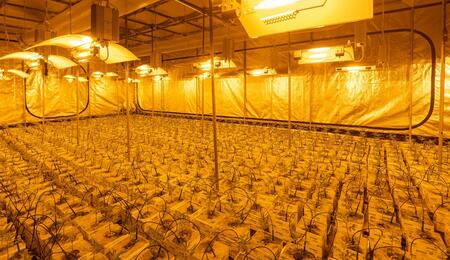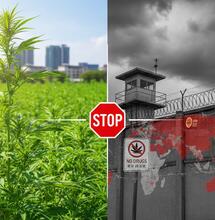Dutch Company Under High Pressure for Odor Complaints

Hefty fines, threats of million-dollar penalties, and a pungent odor that angers locals. It sounds like a movie plot, but it’s the grueling reality of CanAdelaar, one of the first Dutch companies authorized to grow cannabis under the Dutch cannabis experiment, a scheme that amounts to legalization.
Dutch weed producer CanAdelaar reportedly faces a fine of two million euros if it fails to resolve problems with strong smell of marijuana coming out from its facilities. The company has refurbished an old tomato greenhouse into a cannabis farm in the small town of Hellevoetsluis, in the west of the Netherlands, where it has faced repeated odor complaints from neighbors. This summer the grower was ordered to implement odor-control solutions, giving the team time until September 4 to comply with regulation and limit its odor emissions.
When the Smell of Weed is Bad for Business
While Dutch authorities have followed a policy of tolerance towards cannabis consumption, cultivation and supply of cannabis have been in a legal limbo for decades in the Netherlands. The Cannabis Supply Chain Experiment (or the Weed Experiment) was launched to close the ‘missing link’ in the law. The aim of the experiment is to enable a select number of Dutch municipalities to legally supply local coffeeshops with high-grade, safety-tested cannabis grown by authorized producers. This is where CanAdelaar comes into the picture - it is one of the first to obtain permission to produce legal weed in the Netherlands.
However, at the beginning of this year, CanAdelaar already found itself in the eye of the storm. Protests from local residents who complained of a persistent “smell of marijuana” had culminated. Over a thousand reports have been received. This led the Rijnmond Environmental Agency to issue an initial fine of €30,000 (roughly US$35,000), followed by another.
CanAdelaar responded by investing over €1 million in state-of-the-art filtering systems and embarking on a legal battle that enabled it to temporarily suspend the penalties. The court recognized the company’s efforts, giving its leaders time to demonstrate compliance with anti-odor regulations. But the relief was short-lived. The situation has worsened after the Environmental Agency issued an ultimatum: if the cannabis smell problem is not resolved by September 4, a fine of half a million euros will be imposed. The amount will then increase week by week, up to a maximum of two million.
The company also faced a separate court ruling from the Rotterdam District Court on August 7. A measure was issued that all windows and doors of its greenhouse must be sealed immediately, but the grower opposed, claiming closed conditions may blight the plants in days.
CanAdelaar director Max Schreder acknowledged the gravity of the situation, promising to take remedial action. “We are taking control of the situation,” he said, while his team has remained engaged in multiple odor-elimination strategies. Some of the steps taken have included reducing the number of plants in the greenhouse and installing 120 additional filters. The company is also testing a misting system with the regional water authority, and is installing extra extraction systems to channel and filter the air from flowering crops. They have hired a special odor expert for the job.
The recent developments with this Dutch grower show that sometimes changing the laws is not enough to solve problems that may relate to the cannabis industry. Even a country such as the Netherlands, which has more experience with cannabis than other countries per se, is facing certain difficulties. It is clear that the path to complete legalization is full of surprises, including olfactory ones.
More from Soft Secrets:














